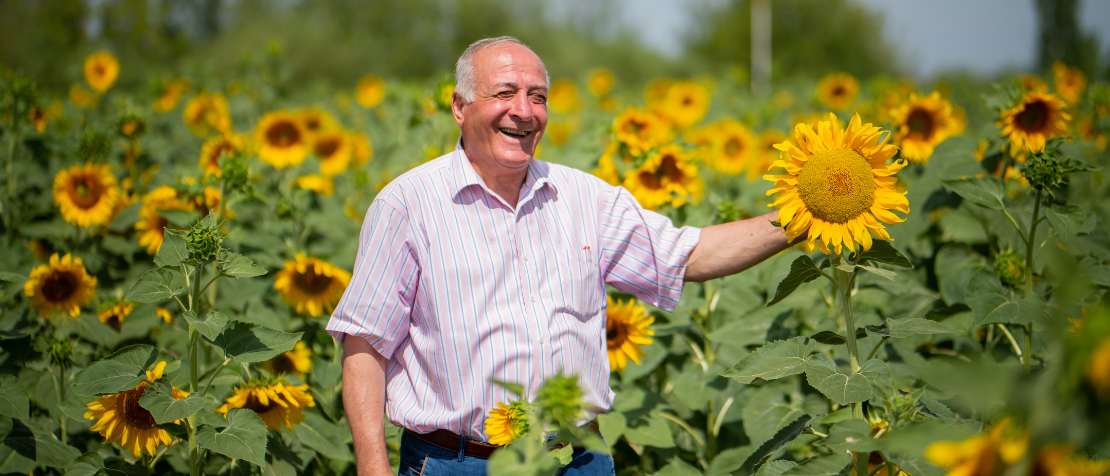Planty of reasons to celebrate plant health
International Day of Plant Health 2025 centres on One Health

©FAO/Javid Gurbanov
Plants provide essential resources to life on Earth. Agrifood systems and food cultures in Europe and Central Asia are heavily dependent on plants – a dependence which relies on those plants being healthy and thriving. Protecting plant health under the holistic One Health approach can help countries of the region boost economic development, reduce rural poverty, support biodiversity, and improve nutrition. Therefore, this year’s International Day of Plant Health, celebrated globally on 12 May, focuses on plants as a critical pillar within One Health.
The Food and Agriculture Organization of the United Nations (FAO), together with the International Plant Protection Convention (IPPC) are at the forefront of the global efforts to safeguard plant health.
The One Health approach recognizes plant health, as the foundation of food security, is interconnected with human, animal, and environmental health. Healthy plants provide nutrient-rich diets for humans and animals and help promote a balanced ecosystem. However, plants infested by pests can trigger a cascade of negative effects, affecting food supplies and even inducing outbreaks of zoonotic diseases transmitted through harmful pathogens.
“Every year, up to 40 percent of food crops are lost globally due to plant pests, directly affecting food security and the livelihoods of vulnerable rural communities. It’s a lost opportunity to feed more people or nourish them better; this is why plant health matters so much,” said Artur Shamilov, FAO Agricultural Officer.
The benefit of ensuring plant health extends far beyond the sector of food and livestock production. Healthy plants play a crucial role in maintaining environmental health and soil ecosystems.
International Plant Health Day calls for global action to prioritize plant protection through policies that address pest and disease outbreaks, promote sustainable pest management, and facilitate safe trade. FAO advocates for more support to invest in plant health initiatives, including compliance with international phytosanitary standards in agricultural trade, Integrated Pest Management, and the sustainable use of pesticides. All of these are critical issues in Europe and Central Asia as well.
Through its expertise and policy assistance, FAO has been helping countries in the region improve their legal and institutional frameworks on plant health and align them with the IPPC recommendations, enhance national phytosanitary systems and pest control methods including those for trade obligations and sustainable pesticide use. The Organization is promoting integrated methods (agrotechnical, biological, and more) and raising awareness of non-chemical methods and of the need to improve transboundary pest control and forest health.
“Projects vary from targeting specific issues connected to plant protection to initiatives with a much broader agricultural systems approach,” Shamilov added. To give examples, he mentioned a multi-country effort to reduce persistent organic pollutant releases from obsolete pesticide stockpiles and contaminated sites, while presenting safer alternatives to highly hazardous pesticides, an initiative encouraging Georgian vineyards to use this environmentally friendly pest control method against the European grapevine moth, and a recently started project in Turkmenistan for the improvement of pest management capacities for cereal crops.
About the International Day of Plant Health
As the legacy of the International Year of Plant Health 2020, the United Nations designated 12 May as the International Day of Plant Health to raise awareness about its importance and continue to bring together governments, policy makers, organizations, and individuals worldwide to act for plant health and biodiversity. It also highlights the importance of safeguarding plant health as a foundation for agricultural productivity, food security, and environmental sustainability.
International Day of Plant Health
Why plant health is the root of One Health
Turkmenistan advances resilience in cotton production and pest management in cereal crops
Managing pesticide wastes, supporting green crop production in Central Asia and Türkiye
International No Pesticide Use Day: the start of a future free from pesticide effects
FAO Regional Priority Programme: Managing natural resources sustainably and preserving biodiversity in a changing climate
